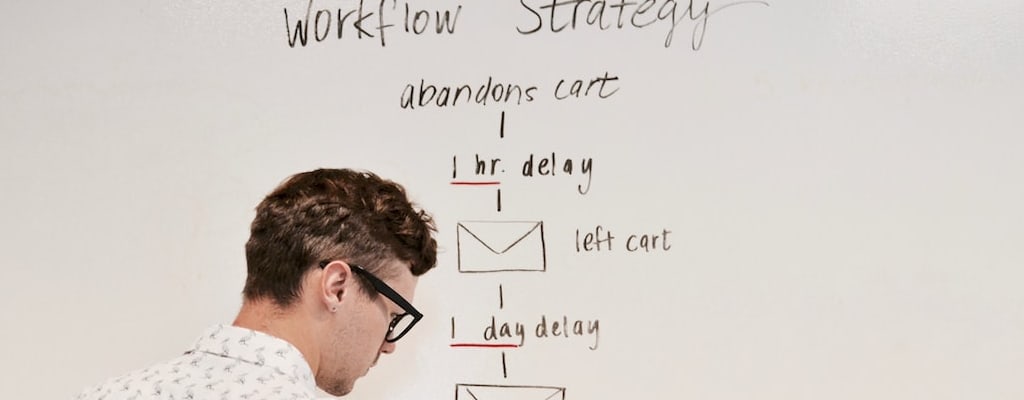dismal science: Idiom Meaning and Origin
What does ‘dismal science’ mean?
The idiom "dismal science" refers to economics, and it implies that the study of economics can be gloomy or pessimistic.

Idiom Explorer
The idiom "lead nowhere" means that a situation or action has no positive outcome or result. It implies that the efforts put into something are futile and will not lead to any productive or useful outcome.
The idiom "ill health" refers to a person's state of being unhealthy or experiencing poor physical condition.
The idiom "horror show" is commonly used to describe a situation or event that is extremely unpleasant, horrifying, or disturbing.
The idiom "hard on the eyes" is used to describe something that is visually unappealing or difficult to look at.
The idiom "go south" means to decline, fail, or deteriorate. It is often used when describing a situation or a project that is no longer successful or going as planned.
The idiom "go downhill" means that something is deteriorating or becoming worse over time. It can refer to a decline in quality, performance, or overall condition.
The idiom *glass-half-full* refers to having an optimistic outlook on life or a positive attitude, focusing on the positive aspects of a situation rather than the negatives.
The idiom "doomed if you do, doomed if you don't" refers to a lose-lose situation, where any choice or action will lead to negative consequences or a bad outcome.
Origin Story
The idiom "dismal science" is a phrase often used to refer to the study of economics. It was coined by Scottish writer and historian Thomas Carlyle in the mid-19th century. Carlyle used the term in his work "Occasional Discourse on the Negro Question" to criticize economist John Stuart Mill and other economists for their views on slavery.
Carlyle considered the study of economics to be dismal because it focused solely on material wealth and ignored the moral and spiritual aspects of life. He believed that by reducing human behavior to economic principles, economists failed to capture the full complexity of human nature and the human experience.
Since Carlyle's use of the term, "dismal science" has become a popular way to express a negative opinion about the field of economics. It implies that economics is a gloomy and dreary subject, devoid of any real value or insight into the human condition.
The irony of the term "dismal science" lies in the fact that economics, as a discipline, strives to understand and explain the complexities of human behavior and the functioning of markets. While it may often deal with difficult or unpleasant topics, such as poverty, inequality, and recessions, it provides a framework for analyzing and addressing these issues.
Economists recognize the challenges and limitations of their field, and many embrace the idiom "dismal science" as a means of self-deprecation. They acknowledge the complexities of economic analysis while also highlighting the importance of considering broader social and ethical factors in decision-making.
Despite its negative connotations, the idiom "dismal science" has endured and continues to be used today. It serves as a reminder of the broader implications and responsibilities that come with the study of economics.
The related idiom "bad news" reflects the pessimistic view often associated with the study of economics. Economics can often involve delivering unpleasant news, such as forecasting recessions or analyzing the negative impacts of certain policies. While it may be seen as "bad news" to some, economists strive to provide accurate and objective analysis to inform decision-making.
The idiom "glass-half-empty" is another phrase that can be related to the study of economics. Economics often involves analyzing risks and uncertainties, and it can sometimes highlight the potential downsides or negative outcomes of certain actions or policies. However, economists also recognize the opportunities and potential for positive change, and they work to find solutions and strategies that can lead to positive outcomes.
The idiom "doomed if you do, doomed if you don't" can also be seen as relevant to economics. Economic decisions often involve trade-offs and competing interests, and it is not uncommon for there to be no perfect solution or outcome. In some cases, taking action may have negative consequences, while not taking action may also lead to negative outcomes. Economists work to identify the best course of action based on careful analysis and consideration of the potential risks and benefits.
Example usage
Examples of how the idiom *dismal science* can be used in a sentence:
- The economist described the outcome of the recession as a horrifically dismal science.
- Despite its reputation as the dismal science, economics offers valuable insights into how markets function.
- Many students find economics to be a rather dry and dismal science.
The idiom *dismal science* is often used as a way to refer to economics, which is considered by some to be a gloomy and depressing subject. It suggests that studying economics can be disheartening due to its focus on negative aspects such as scarcity, unemployment, and economic crises. However, the idiom can also be used with a hint of irony to acknowledge the importance of economics despite its challenging nature.
More "Economics" idioms



